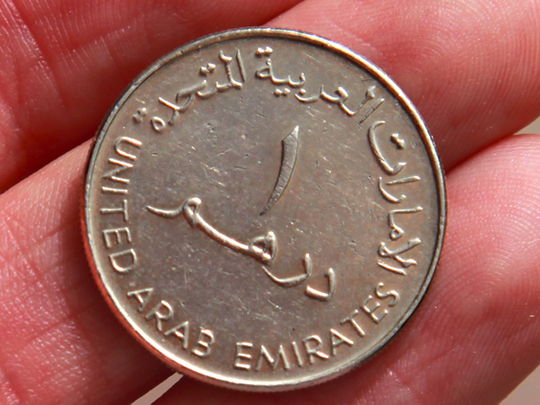
Before making the big move overseas, many expatriates probably imagine how exciting and financially rewarding it would be to work in a big city. They picture life in a land of dreams, with lots of opportunities, fun and money — streets paved with gold, as the saying goes.
Sure, the cosmopolitan lifestyle can be glamorous, sophisticated and lavish. But that's also a hard life to sustain for those who are facing a huge gap between monthly paychecks and the cost of living.
It didn't surprise me that many people reacted to the story I wrote about Diane a few weeks ago. It was about an expat who managed to live on Dh2,500 monthly pay, and it touched the souls of those who also struggle to make ends meet. In each bustling city, or anywhere in the world, there are many interesting anecdotes like Diane's.
Of course, there's absolutely a high risk of going deep into debt if you're getting a rock-bottom salary. But still, a lot of people have thrived on menial jobs. Perhaps you can add to that list a nanny, a driver, a janitor or a construction worker earning below Dh1,000. The question is: how did they stay out of debt with a paltry income?
I probably wouldn't last a month with pay that low. I'd most definitely go packing right away, but, as they say, it's different strokes for different folks. You can survive in Dubai on Dh800 per month, or Dh4,000, or anything in that range, or obviously more. A person earning Dh20,000 a month can still find himself buried neck-deep in debt.
No matter where you are in the income bracket, you can still end up in trouble if you're not mindful of your spending. The key then is to live within your means, if you have at least a subsistence wage. Yes, you've heard it before: don't spend more than what you earn.
Lifestyle choice
Of course, that's just talking about survival. But if you have bigger dreams or an ideal lifestyle — perhaps to have a room of your own and drive your own car, or to build a huge house and send your children to medical school — it's a safe assumption that an Dh800 monthly salary is not going to get you anywhere on that front.
Still, you don't need a financial expert to break it down for you. Ask yourself these questions. How long do you need to work on your current salary to meet your goals? If you keep saving the same amount for 10 years, would it be enough to fund your dream house or pay your children's tuition?
Let's say you're saving Dh500 a month. In 10 years, your nest egg would grow to Dh60,000, granting that, over that period, your life circumstances don't change: you manage to keep the same job, you don't invest your savings somewhere, you don't have a secondary income and no major emergency ever comes up.
Can you buy a house in 10 years' time for Dh60,000? Would you still be able to work by then? What about your retirement? And while you stick to your Dh500-a-month savings objective, are you willing to lead a meagre existence. It might mean walking for 200 kilometres a month, sharing a small room with eight other people, living on canned goods, biscuits and leftovers — not much fun.
If you're not happy or comfortable with the answers, it's time to re-think your earning strategy, whether it means moving on, or anyway changing your ways.








